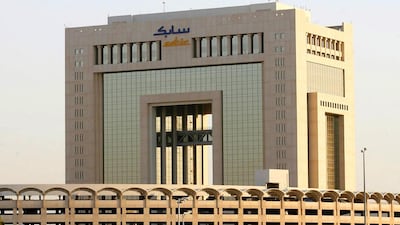The feedstock available to Saudi petrochemical companies should return to usual levels by the end of the month after a temporary outage of more than half of the kingdom's oil production, according to two of the country's biggest downstream companies.
Attacks on the world's biggest oil processing facility and a field in the country's oil-rich Eastern Province cut off 5.7 million barrels per day, or the equivalent of 5 per cent of global supply earlier this month.
Saudi Arabia, the world's largest oil exporter, continued to meet its contractual obligations to international customers by drawing on its reserves and cutting back on feedstock supply to domestic refiners and petchems.
Saudi Basic Industries Corporation, the biggest listed company in the kingdom, had suffered a 40 per cent decrease in available feedstock in the immediate aftermath of the incidents.
Yesterday, the company said in a statement to the Tadawul stock exchange, where its shares trade, that the loss of supply had been trimmed to
20 per cent, with “the expectation to reach normal levels by end of September”.
Sabic said it was working to evaluate the financial effect of the attack and would disclose “any material developments in this regard”.
Other companies had also reported supply disruptions ranging from 30 to 50 per cent of feedstock, but the National Petrochemical Company said in a disclosure to the Saudi bourse yesterday that its supply had "gradually improved" to reach normal levels on Thursday. The company initially faced a 40 per cent reduction in feedstock supply from Saudi Aramco. There was no "material financial impact" from the disruption, it added.
Facts Global Energy in London said in a note last week that the restriction of supply to local petchems is likely to hit consumption of products such as liquefied petroleum gas and naphtha.
Saudi Arabia is a significant exporter of LPG, selling 290,000 bpd on average in the first eight months of the year, and 220,000 bpd of naphtha during the same period.
However, the kingdom’s petrochemicals sector is the main consumer of its local supply of both products.
"We expect both exports and domestic consumption will be impacted for both products, mainly in September and to a lesser extent in October," the consultancy said.


